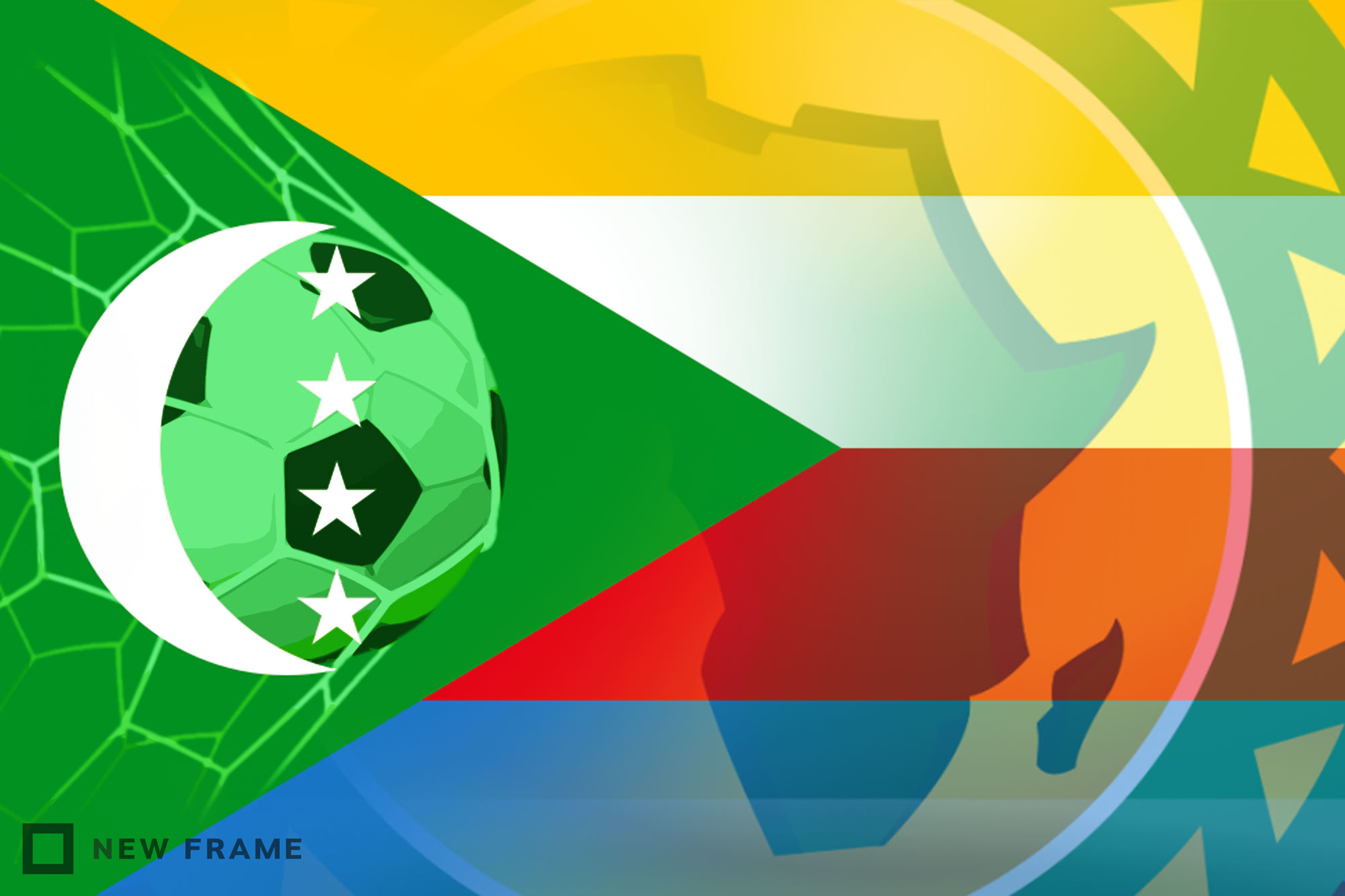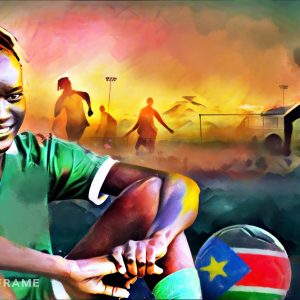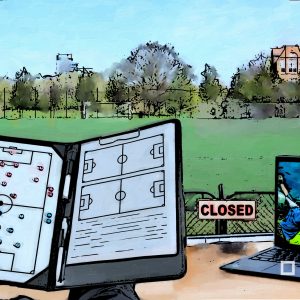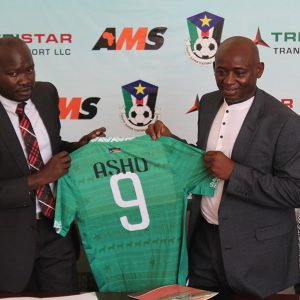The Comoros’ rise to football prominence
The Comoros Islands, with limited financial means and personnel, defied the odds to book a ticket to Cameroon for the Afcon. Those who were there explain how they did it and share their plans for t…
Author:
4 June 2021

Silence greeted Comoros’ maiden Africa Cup of Nations’ (Afcon) qualification. The commentator on the national TV broadcaster momentarily had no words to describe the tension of their 0-0 draw with Togo in March and the eventual joy for the Coelacanths that followed the final whistle.
Comoros’ achievement is remarkable considering that they have fewer inhabitants than the urban area of Johannesburg, with about 921 000 people. They also joined Fifa only in 2005 and they are the second smallest country in terms of population to qualify for the Afcon after Cape Verde.
Related article:
When you are such a small country, there are two paths to take to build a competitive national team: invest in football infrastructures and the developing of grassroots football or, if you have one, rely on the diaspora who have trained abroad in more organised footballing countries. The best case scenario is to marry the two.
But if the financial means are scarce, one has no choice but to rely heavily on the diaspora. This is what the Comoros Football Federation (FFC) did. The FFC is, however, representative of the Union of the Comoros and not of the Comoros archipelago which also includes the French extraterritorial department of the island of Mayotte. They looked for talent abroad, especially from their former coloniser France, where most Comorians go to seek a better life.
The Marseille connection
The first wave of players with dual nationalities started being integrated into the team at the end of the 2010s, but it was in 2014 following coach Amir Abdou’s appointment that the bond was consolidated. Abdou was born in Marseille where the vast majority of the Comorian community in France has settled. It is estimated that between 100 000 and 200 000 people of Comorian descent live in the metropolitan area of Marseille, which the former Comorian president Abdallah Sambi defined as the fifth island of Comoros. Five out of the 15 footballers who played against Togo were born in Marseille.
Rafidine Abdullah, who currently plays for FC Stade Lausanne-Ouchy in Switzerland, is among those players. He joined the national team in 2016 after much hesitation. “I didn’t grow up with the Comorian culture,” he says. “I thought there was nothing in Africa, that there is no European comfort. Also, to be honest, feeling more French, I looked more to the France national team.
I didn’t even know if Comoros had a national team. What I knew about Comoros had come to me through my parents’ stories. It was a superficial thought, then once I went to the Comoros I changed my mind and all fears vanished.”
El Fardou Mohamed Ben Nabouhane, the captain of Comoros, also had doubts before joining the national team, despite growing up in Mayotte and having a closer link with the archipelago than others. “I owe a lot to the coach because through his speeches he made me want to play for the national team,” he recalls. “For sure, a certain lack of prospects weighed in the balance, but I was determined to be a part of this project.
At the beginning it was complicated to put everything in perspective, but I thought long-term about the ultimate goal, which was the improvement of the national team.”
Related article:
For the past eight years, the Comoros national team has experienced gradual growth. “Initially, the organisation was complicated. I remember having showers in my room and not at the stadium,” says Abdullah. “Comfort was lacking and you had to adapt. Now everything has improved. We have a professional staff, recovery times, everything is there now.”
For the first few games, the aim was to avoid the heavy defeats of the early days. “It helped that we binationals were more tactically disciplined,” points out Abdullah. “Now that we have got more self-confidence we also try to play and attack. We showed that progress is possible even when you start from scratch.”
Nabouhane added, “Qualifying for the final stages of the Africa Cup of Nations and World Cup qualifiers means constantly playing in international games which improves the Comorian football and gives visibility to it.”
Finding balance
According to Boina Houssamdine, founder of the website Comoros Football 269, only 10 footballers who grew up in Comoros have been selected for the national team since 2014, and only three of those have played a competitive match. Two of them – Faouz Faidine, 27, and Ibroihim Youssouf, 27 – are part of the current group of the national team. Faidine is the only one to have signed for a European club in the last decade. He joined French amateur side AS Gemenos. Currently he is on the books of Mauritania’s FC Nouadhibou, along with Youssouf, where they are also coached by Abdou.
Abdou has struggled to find a balance between players with dual nationalities and homegrown talent. “I expressed my vision last January as soon as I was elected,” says Saïd Ali Saïd Athouman, the newly appointed FFC president. “We want to set up a good Under-17 national team as fast as possible, and an Under-20 one ahead of the 2024 Olympics.”
The search for the best talents born between 2002 and 2004 has begun to strengthen the national Under-20 side. If done right, that would lay a strong foundation and give the FFC the chance to build a competitive senior team for the 2026 World Cup qualifiers. The pool to draw talent from is big, especially considering that 56% of the Comorian population is under 20 years old.
Related article:
“However, the purpose should not be to qualify for the World Cup but to work on training to ensure the perpetuity of Comorian football,” warns Ahamada Mohamed Thani, the president’s personal advisor.
“We will also train our coaches,” adds Thani. “And we’ll do that through partnerships with the French clubs that work best with young footballers, because the best football training in the world is in France. Also, sports centres are needed on every island. We want to take the problem at its root and also professionalise our championship, because you have to improve the league in order to improve the national team.”
To achieve that, a number of challenges have to be overcome. “The CAF B License is only held by one local coach and the only training centre that existed in the whole territory closed its doors in 2017. A project to reopen and renovate the site is being studied for next year,” wrote Houssamdine.
Thani says: “Our teams don’t have youth teams and we want to impose them. There’s a lot of quality here, but the problem is infrastructure and training methods.”
Comoros has six main stadiums and, of those, only one is up to international standards. Two of them – the stadiums of Fomboni and Sima – only have synthetic turfs. They were both built with funds from the Fifa Forward program but have no changing rooms or stands. The association is, at present, working on reforming the national championship, currently divided into the three islands that form the Union of Comoros, with the three winners squaring up to be champions, and building a federal technical centre in partnership with Fifa.
Related article:
But positioning football as an important project is difficult. “Sport doesn’t take priority over school and religion,” says Thani. “So kids start late in clubs, usually at 16-17 years old, and sometimes parents try to make the kids give up because it’s not easy to make a living out of football.”
But thanks to the national team triumphs, parents’ view of the beautiful game is slowly changing now. “We must not forget the power of the internet as well,” he says. “It allows you to admire players like Sadio Mané who were born in poor villages and could get out of them thanks to football. Examples like his make parents see football as a potential real job.”
Improving the finances is also an important step that needs to be taken. “Some companies contacted us straight after our qualification to the next Afcon. It will be important to get new funds, since the money we receive from Fifa and CAF is not enough,” warns Athouman.
Football has become a uniting force for the Comoros Islands where the individual identity of the three islands –- Grande Comore, Mohéli and Anjouan – has always been strong. “There are people who even travel from Mayotte to our capital Moroni to follow the national team,” says Athouman. “The government’s contribution, which helped us a lot, is also important on the political level to show that we are one nation pursuing a common goal.”
All these plans will ensure that stunned silence doesn’t greet Comoros’ next football milestone. Instead it will be loud joy, with a solid foundation for a bright future laid.




